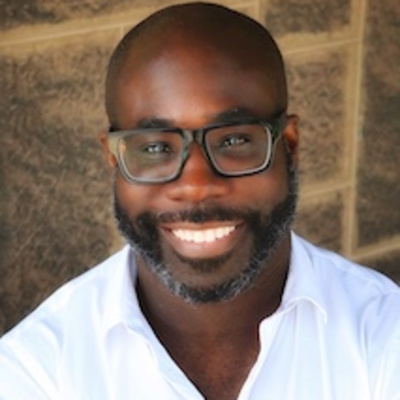 Written by: KiMi Wilson, Ed.D.
Written by: KiMi Wilson, Ed.D.
Assistant Professor, California State University, Los Angeles
AABLI Alumnus, Class #16
Nine thousand two hundred and forty hours have passed –as of this writing– since the World Health Organization (WHO) declared COVID-19 a global pandemic.
COVID abruptly halted or disrupted frequent flyer miles, conference schedules, worship services, hikes, and gatherings with family and friends.
Some of its effects were unexpected. To my physician’s delight, Los Angeles’ air quality drastically improved for me, an asthmatic. He had always loved our interactions but for medical reasons certainly had yearned to see me less.
Other effects have been unhappy ones. Gone, for example, are physical interactions with Black academics who filled me with so much joy. Those have been reduced to Zoom gatherings, a new technological version of self-care.
All of this turmoil has gone on as we navigated college and university spaces where folks were reluctant to mention the names of Breonna Taylor and George Perry Floyd, Jr. Ambivalent feelings arose as people screamed Black Lives Matter and suddenly, new diversity, equity, and inclusion experts appeared. Faces I’ve never seen walking the halls of public schools where Black bodies scream from the top of their lungs, longing for their humanity to be valued, longing for quality education.
And now safely vaccinated, privileged folks are ready to return to normalcy, when front-line and essential workers are still risking their lives so we can receive our latest order from Amazon Prime. Even now, their labor remains undervalued and unappreciated.
I’m left wondering: what is normal anymore? Long gone are the pre-COVID days when individuals worshipped their jobs as the end-all be-all. We’ve been redefining what satisfaction means during a pandemic, trading sorrows for meditation, exercise and spiritual development, and launching products using skill sets we used to dismiss as hobbies, discovering they can actually help us make ends meet.
What does all of this mean for higher education?
Sophomores and second-year grad students will fill university seats trying to reclaim the time COVID stole from them. Yet in spite of the protests, advocacy, and millions of dollars thrown at equity initiatives, institutional problems in higher education remain.
The burnt ashes of letters sent to Black students will still seep from university hard drives. The elimination of the Scholastic Aptitude Test (SAT) will only worsen impoverished Black students’ acceptance chances, as residential segregation results in minimal advanced placement course offerings and less professional development for staff committed to serving Black children. This could hinder or halt their opportunities to learn, and deny them a chance afforded to students from wealthier communities–the all-important chance to raise their grade point averages.
We see Black university faculty forced to leave once-coveted positions at the hands of a retention, tenure, and promotion process stepped in whiteness (reference the case of academician Cornel West) that refuses to see the worth in their humanity, scholarship, or commitment to their community. This leaves Black academics to leverage their skills in new pastures, creating a void in mentoring the next generation of Black innovators, leaders, and scholars.
Five thousand three hundred seventy-six hours have passed since AABLI Class 16. That class was my blessing in the pandemic, an opportunity both to soak up melanin from different parts of the world via Zoom and to learn the ins and outs of influencing nonprofit board culture. Since then, I’ve joined two nonprofit boards, never losing sight of my commitment to Black children. If we as Black professionals don’t place Blackness first in everything we do, what will we leave for future generations?
As we return to colleges and universities in the fall, more masks and sanitizing stations will be visible but fewer people of color will, the result of the COVID-19 monster’s ravaging of our communities. Stop and take a look around. If you are still the first or the only one represented in the room, and the issues mentioned above remain, is it still safe to open the world?
KiMi Wilson, Ed.D., is an assistant professor of curriculum and instruction at the Charter College of Education, California State University, Los Angeles. As a faculty member, Dr. Wilson has taught undergraduate and graduate courses, served as chair and as a committee member for dissertations. Dr. Wilson has been in the field of education for more than fifteen years, serving as a public school teacher, curriculum specialist, and education director with expertise on teaching and learning, math and science identity development and equity. Dr. Wilson is currently engaged in ethnographic research focusing on math and science identity development for Black boys, developing a math and science observation protocol for elementary students, and working with Black high school students learning civic and social entrepreneurship and shared governance/reorganization of the school’s Black Student Union. Dr. Wilson is the principal investigator for The Future Male Minority Teachers of California (F2MTC) project to improve the pipeline for male teachers of color throughout the California State University system. Dr. Wilson also serves as co- principal investigator for the Howard Hughes Medical Institute grant awarded to Cal State LA for $1 million dollars. Dr. Wilson’s role is to develop and facilitate equity workshops for STEM faculty focusing on culturally relevant pedagogy in the sciences.
This blog is not written by aabli.org or The African American Board Leadership Institute. The author is solely responsible for the content.






